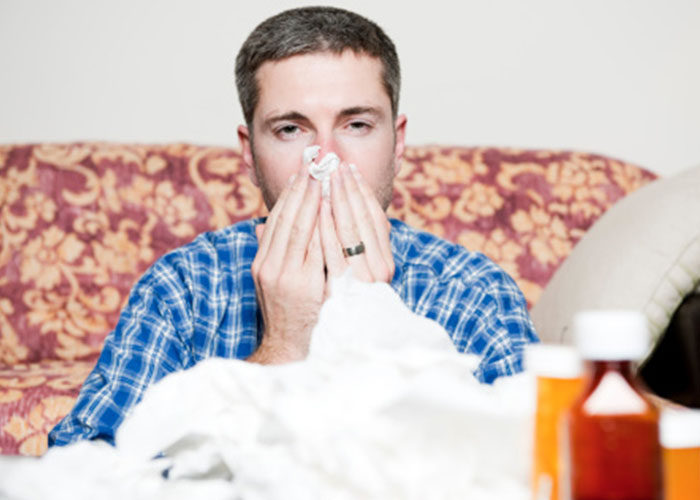Antibiotics and sinus infections
A new study shows that antibiotics are no more effective against sinus infections than a placebo

Researchers at Washington University School of Medicine have shown that antibiotics are no more effective against sinus infections than a placebo.
Related audio:
Mounting evidence continues to indicate that taking an antibiotic will not help adults and children suffering from sinus infections. In fact, a study from Washington University School of Medicine shows that antibiotics typically prescribed for sinus infections do not reduce symptoms any better or help patients recover any faster than a placebo, or sugar pill. Most people get better on their own.
“We think that antibiotics are overused in the primary-care setting,” says Jane Garbutt, MB, ChB, Washington University researcher and director of the Washington University Pediatric and Adolescent Ambulatory Research Consortium (WUPAARC), a research network that partners with community physicians on outpatient clinical studies. “We hope this study provides the scientific evidence doctors can use to explain to their patients that an antibiotic is not likely to help an acute sinus infection.”
Resistance on the rise

Garbutt and her colleagues say that it is important to know whether antibiotics are effective for sinus infections because they are so frequently prescribed for that purpose and because bacterial resistance to antibiotics is rising.
In practice, instead of giving antibiotics, such as amoxicillin, research suggests a combination of treating the symptoms, such as pain, cough and congestion, and watchful waiting to see whether further treatment is necessary.
The study included 166 adult participants with acute sinus infections who were recruited at their primary care physicians’ offices in St. Louis. They were randomly assigned to receive a 10-day course of either amoxicillin or placebo. All patients also got medications for relieving pain, fever, congestion and cough.
Researchers assessed patients’ symptoms at the start of treatment and then three, seven, 10 and 28 days afterward. At each time point, patients answered a questionnaire assessing quality-of-life measurements related to the disease called the Sinonasal Outcome Test-16 (SNOT-16). The study also compared recurrence of symptoms and the number of days missed from work.
Antibiotic vs. placebo
At day three, there was no difference between the antibiotic and placebo groups in any of these measures. At day seven, the study revealed a small improvement in the antibiotic group’s questionnaire scores. However, Garbutt says this small change was unlikely to represent a noticeable relief from symptoms.
Furthermore, this modest improvement disappeared by day 10, when about 80 percent of patients in both groups reported their symptoms were very much improved or cured. They also found no difference between the antibiotic and placebo groups in the amount of over-the-counter medications patients used to alleviate pain, fever, congestion and cough.
“It’s a nasty disease,” Garbutt says. “People have significant symptoms. They feel miserable and miss time from work. If an antibiotic is not going to be of any benefit, then what is? That’s a question we haven’t answered yet. But we are working on it.”
Garbutt says upcoming studies will examine whether nasal washing with saline solution, such as that used with a neti pot, will help ease symptoms and clear the infection more quickly.
Prevention & treatment
A few lifestyle changes may help prevent sinus infections or ease symptoms, including:
Washing hands.
Sinus infections often follow the common cold. Reducing the risk of upper respiratory tract infections may help prevent colds and their progression to sinus infections.
Drinking fluids.
Fluids can thin mucous and help the sinuses drain.
Getting plenty of sleep.
A well-rested body is better able to fight infection.
Sleeping with head elevated.
This can help sinus drainage.
Using a humidifier.
Moist air can also help thin mucous. Keep the humidifier clean and mold-free.
Rinsing out nasal passages.
This home remedy may help clear sinus congestion. Use water that is sterile, distilled, boiled first then cooled, or filtered (pore size 1 micron or smaller). Whether using a squeeze bottle, bulb syringe or neti pot, clean and air-dry it between uses.







